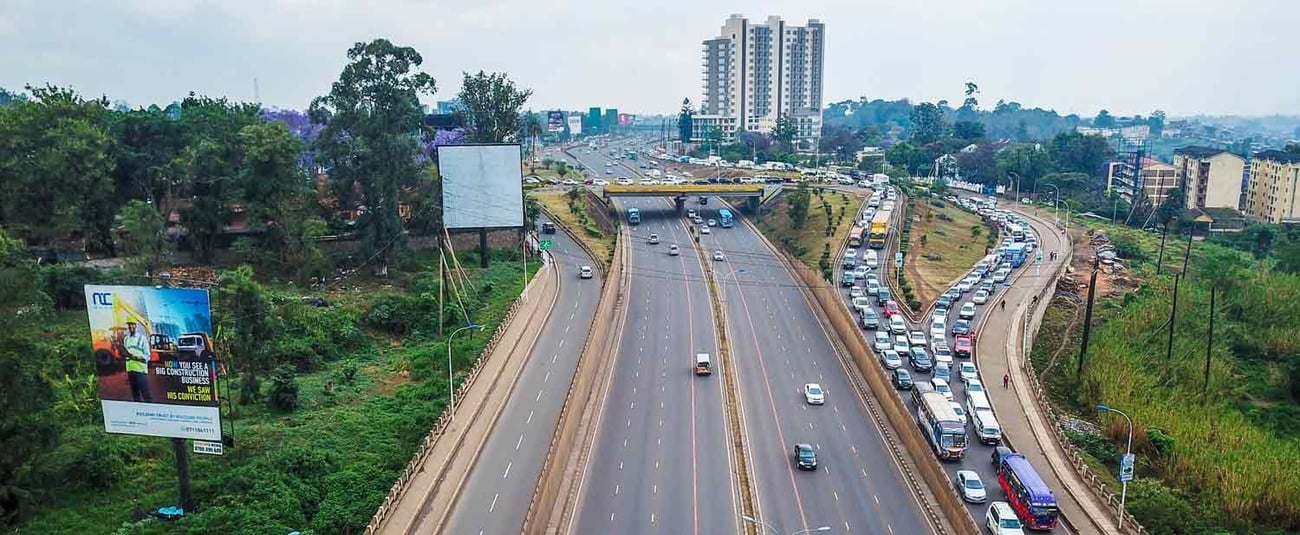
The Board of Directors of the African Development Bank Group has approved a loan of $140.6 million to Eswatini for the first stage of a programme to improve road links and mobility at national and regional level in both urban and rural areas and create at least 200 jobs.
Inadequate road infrastructure is a major reason why socio-economic development has struggled to make progress in the regions of Lubombo and Shiselweni. The regions have abundant agricultural resources, but employment opportunities are limited and young people lack essential skills.
The road infrastructure investment will enable upgrading of 105.9 km of paved roads. The new road surfaces will be adapted to climate change, enabling all-weather transportation locally and the wider area. The Siphofaneni-Sithobelath-Maloma-Nsoko (MR14) and Maloma-Siphambanweni (MR21) sections will be upgraded and will have a width of 12.3 metres, including 2-metre paved shoulders on each side of the road as well as bridges. The effect will be to reduce journey times and vehicle operating costs.
The project also includes construction of an axle-load weighing facility along the MR14 road. In addition, support will be provided to sectoral reforms of policy and institutional frameworks in the sphere of road safety (current road safety provisions are not consistently implemented), and for the design of an axle-load control programme.
In welcoming the project, the Bank Group’s Vice President for Private Sector, Infrastructure and Industrialization Solomon Quaynor said, “infrastructure is the foundation upon which lives are rebuilt, communities thrive, and economies grow. With the ERIIP, we are bridging the gap between isolation and opportunity, highlighting the power of connectivity to change lives.”
Moono Mupotola, the Bank’s Country Manager for Eswatini said : “Above all, the project will contribute to poverty reduction by creating well-paid jobs for young people in economically disadvantaged regions such as Lubombo and Shilselweni,”. “This will be achieved through targeted vocational training and apprenticeship programmes. At least 200 young people will benefit by obtaining formal qualifications and professional and technical skills that are adapted to market needs.”
The Bank began operations in Eswatini in 1972 and its cumulative contributions in the country to date exceed USD 820 million in the form of grants and concessional loans. The Bank’s interventions have included investments across various sectors (agriculture, mining, energy, water and sanitation, transport, finance, governance and communication, knowledge-based activities, policy dialogue and technical assistance.
Source: AFDB
Importance of the Funding for Eswatini
By upgrading 105.9 kilometers of road, this project will enhance connectivity, reduce journey times, and lower vehicle operating costs, thereby facilitating trade and mobility for both urban and rural communities.
Moreover, the initiative is poised to create at least 200 jobs, directly addressing youth unemployment through targeted vocational training and apprenticeship programs. This investment not only aims to improve road safety and climate resilience but also supports broader economic reforms that align with market needs. Ultimately, the project stands to significantly contribute to poverty reduction and sustainable economic growth in Eswatini, reinforcing the vital role that infrastructure plays in fostering community development and economic opportunity.
